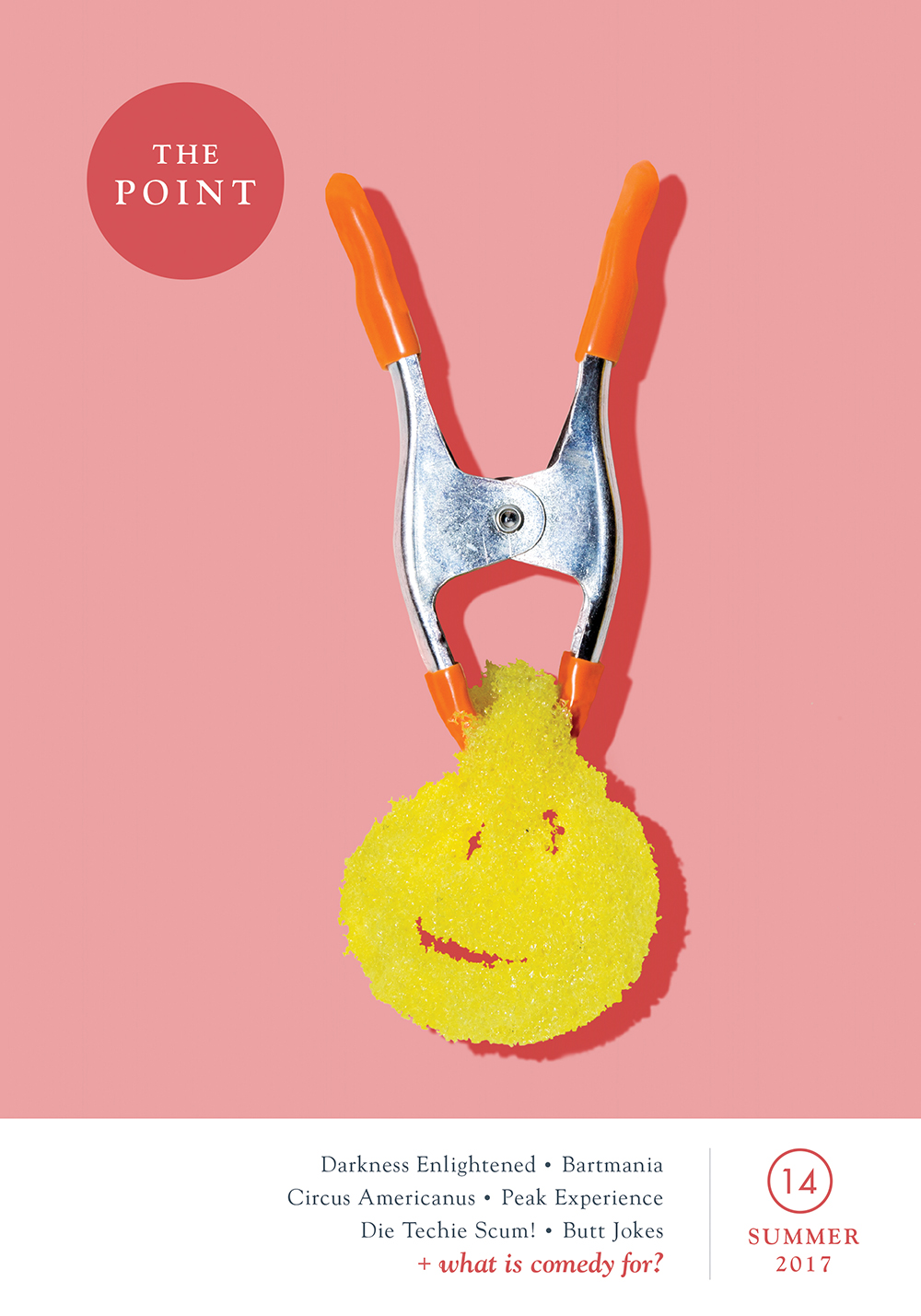Activity
the conservativeness of late-night shows
Or take the late-night shows--they are so conservative in their comedy. It's the worst thing! It does the opposite of what comedy's supposed to do. If comedy is supposed to open people's minds, then you go to Colbert, for instance, and all he does is thirty Trump-is-shit jokes? Everyone knows this!…
comedy is a way of opening the mind
Because otherwise you have cultures that are mired in their own ways of thinking--there's no development, there's no provocation to think differently. You have to provoke. You have to create a bit of uncertainty. Unless you believe that everything's perfect and that people shouldn't question th…
Things Don't Make Sense (missing author)
liberation short of offing the tyrant
But could there really be no liberation short of offing the tyrant? Is there not another species of emancipation in flights of the spirit, even if they change nothing in our material reality? The playing field of the imagination is infinite, after all. So even though humor forces us back into our h…

